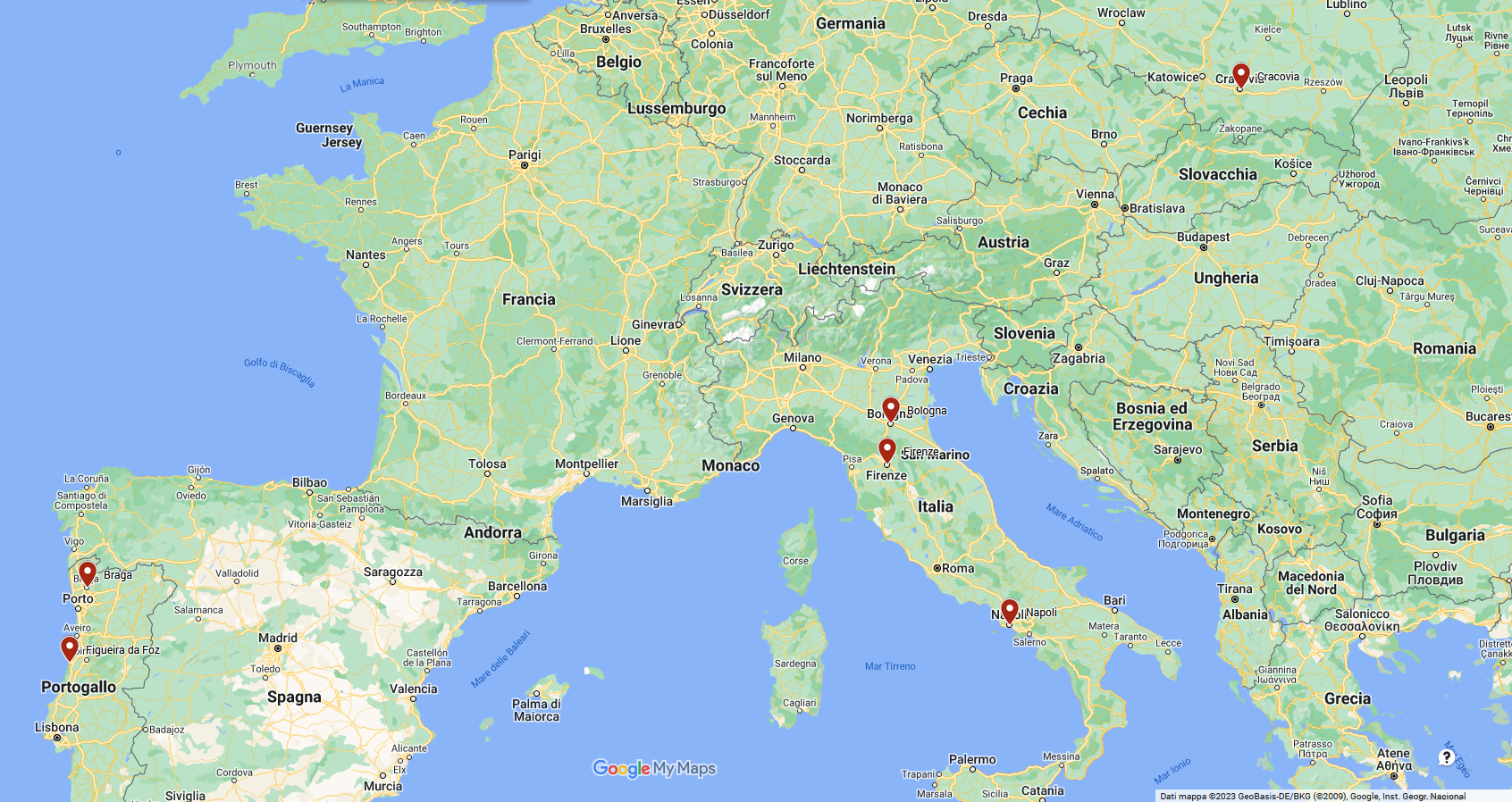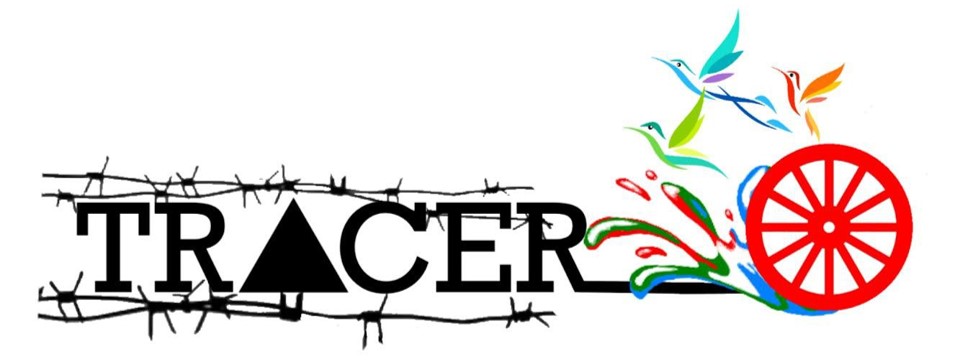GOALS
- Involve the communities in collecting narratives about the Holocaust and the Roma genocide (porrajmos);
- Promote the participation of Roma and non-Roma youth groups in the action research process;
- Involve youth groups (leaders) in peer education activities on the porrajmos and on the importance of remembrance;
- Raise younger generations' awareness and spread anti-discrimination messages through various forms of art (graffiti, music, theatre, video...)
WHERE
The project takes place in Italy (Bologna, Florence and Naples), Portugal (Braga and Figueira da Foz) and Poland (Krakow)

WHO
Partners
- University of Bologna - Dipartimento di Scienze dell'Educazione "Giovanni Maria Bertin", Italia
- University of Florence – Dipartimento di Formazione, Lingue, Interculture, Letteratura e Psicologia, Italia
- C.A.T. (Centro di Animazione Triccheballacche) cooperative, Italia
- Chi Rom e…chi no Association, Napoli, Italia
- Opengroup Cooperative, Bologna, Italia
- Stowarzyszenie Romow w Polsce, Polonia
- Ribaltambição - Associação para a Igualdade de Género nas Comunidades Ciganas, Figueira da Foz Portogallo
- Alto Comissariado para as Migrações (ACM), Portogallo
- Research Center on Education (CIEd) - Institute of Education of the University of Minho, Braga, Portogallo
HOW
Action-Research is the methodological approach used throughout the project. Young people, teenagers, educators, teachers and researchers develop the different project activities together by combining phases of research, action and reflection. The aim is to reconstruct the memory of the holocaust and the porrajmos in a participative manner: understanding the experience of some witnesses, reflecting on issues of discrimination and imaging proactive and awareness-raising actions.
ACTIONS
The activities, divided into several work packages, include:
1) The establishment of a group of young Roma and non-Roma leaders groups in six local areas (Bologna, Florence and Naples, Braga, Figueira da Foz and Krakow) and an initial training on European history.
2) Activities with each leaders' group:
- Reconstruction of the history of the porrajmos through studies, documentation and interviews conducted by the leaders with significant witnesses from the Roma community and others.
- Reflection and re-elaboration of the historical contents and development of a project proposal (art workshops) aimed at peers (teenagers) and a wider target group (teens and teachers).
3) Common activity for the six leaders' groups
- Trip to Auschwitz - Birkenau, activity and workshops in Block 13 (block of the Auschwitz museum dedicated to the history of the Roma during World War II).
At the end of the project, video clips will be chosen for the making of a video documentary that will summarise the process and give a voice to the participants in the three countries. The documentary will contain anti-discrimination messages, help to preserve the memory and give a broad distribution of the outcomes of Tracer project (in connection with other dissemination initiatives: international conference and book containing the results of the project).
Through the action research and documentation carried out by the six groups of young leaders, the project will involve:
- Groups of teenagers in carrying out workshop and artistic activities;
- Teachers, schools and primary and secondary classes;
- Parents and citizens interested in these topics who can attend the events (performances, artistic workshops...) and monitor the implementation of the project through the website, which will be periodically updated with extracts of the documentation produced.
INSTITUTIONAL FRAMEWORK
The project contributes to the promotion of Article 21 of the Charter of Fundamental Rights of the European Union by supporting related social policies and national strategies through innovative actions focused on the participative construction of the memory of the holocaust of Sinti and Roma minorities in Europe. In parallel, the initiative aims to support both the enactment of the EU Roma Framework for equality, inclusion and participation 2020-2030 and the adoption of the Common Basic Principles for Roma Inclusion so as to provide a framework for the successful design and implementation of actions towards achieving inclusion of Roma populations into the life of local communities.
